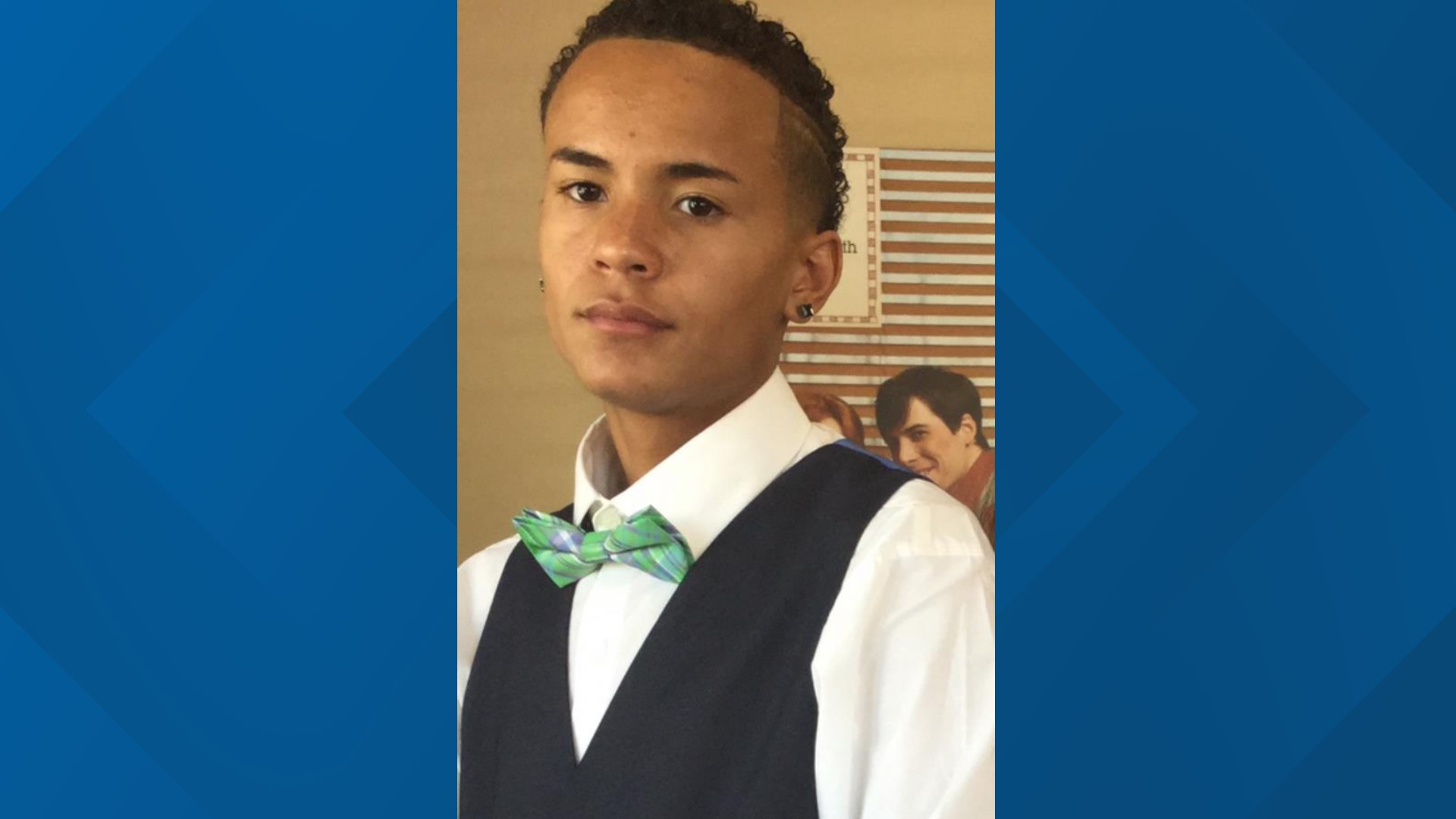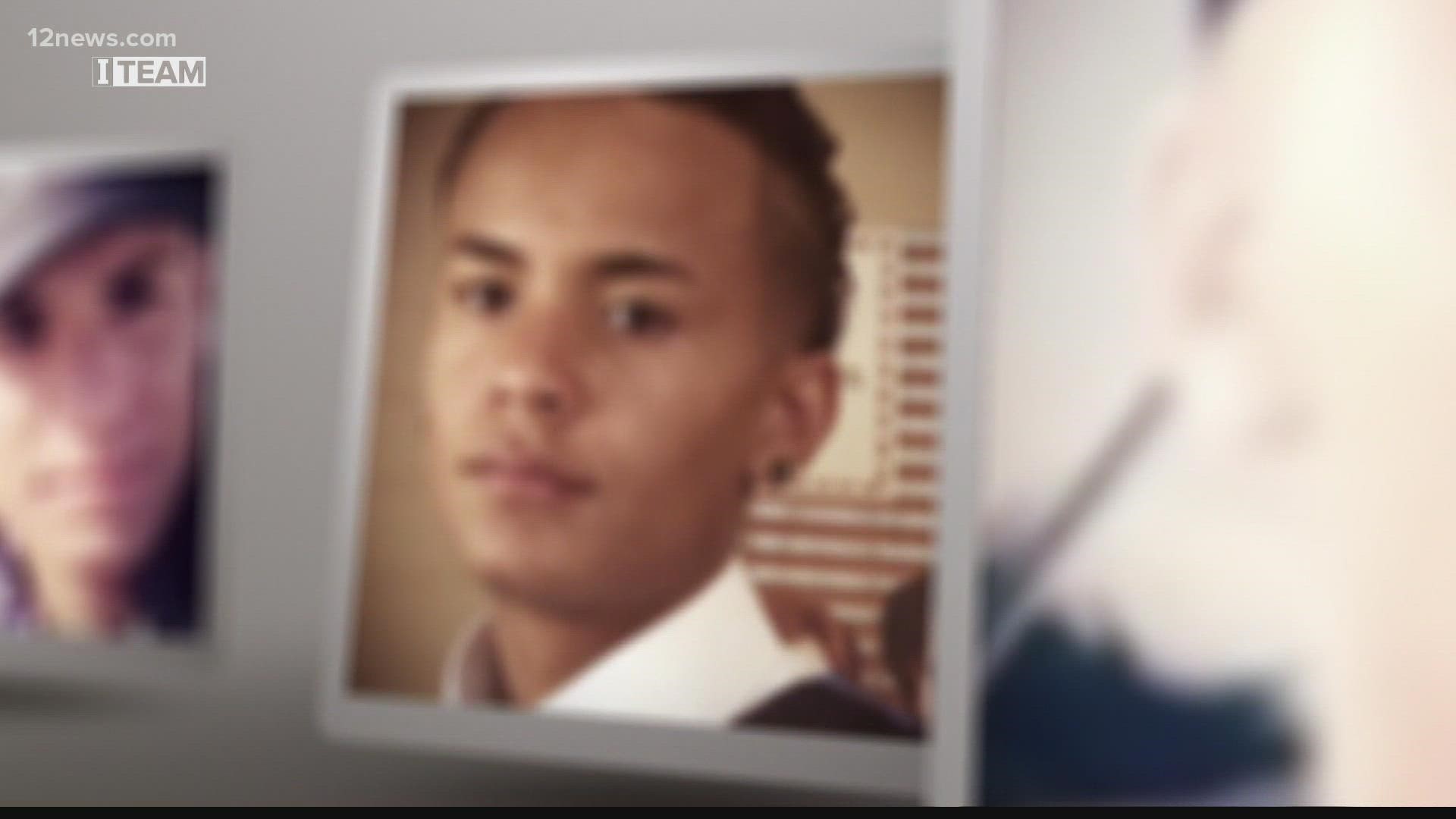Fathers for Justice: Is Arizona's prison system to blame for Elijah Al-Amin's death?
The father of an accused killer and the father of his victim are both pushing for change in Arizona's system of care they claim failed both of their sons.
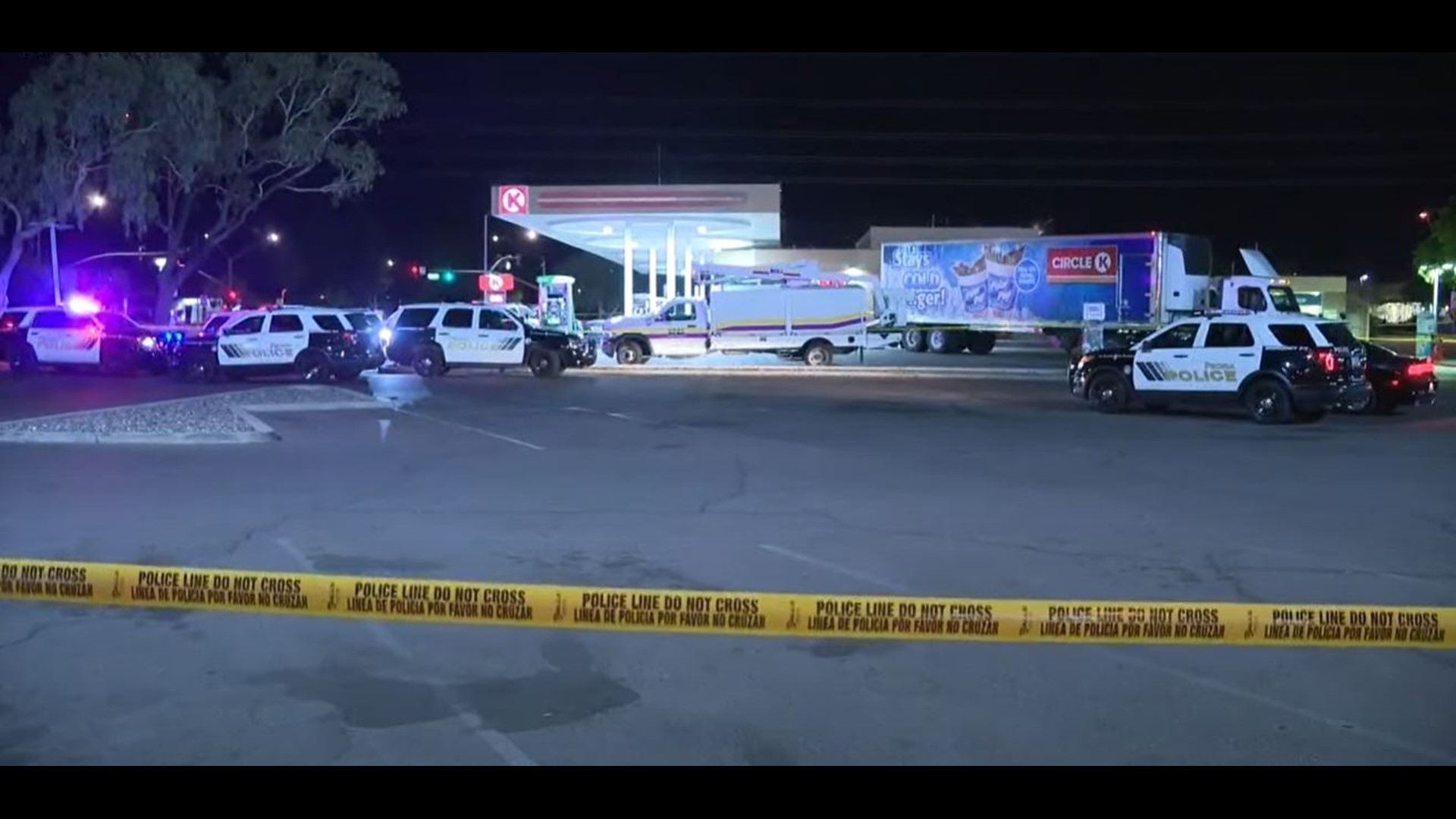
Chapter 1 'There was no continuity of care'
It’s the early hours of the Fourth of July in 2019. Elijah Al-Amin, 17, just got off work and made a stop at a Circle K gas station in Peoria with his girlfriend before heading home. He had no way of knowing he’d never make it there.
Soon after he stopped at the gas station, Elijah was attacked and stabbed to death. Witnesses told police the attack came out of nowhere.
Suspect Michael Adams, who was 27 years old at the time, admitted he did do the crime. He told police he felt threatened by the rap music Elijah was playing in the parking lot.
“I was robbed of life with him,” said Elijah’s father, Raheem Al-Amin. “I was robbed of being a grandfather to one of his kids. Or him getting married. Everything was robbed and taken from my family."
Paul Adams, Michael's father, said, “It cuts me to the core to know that my son did what he did.”

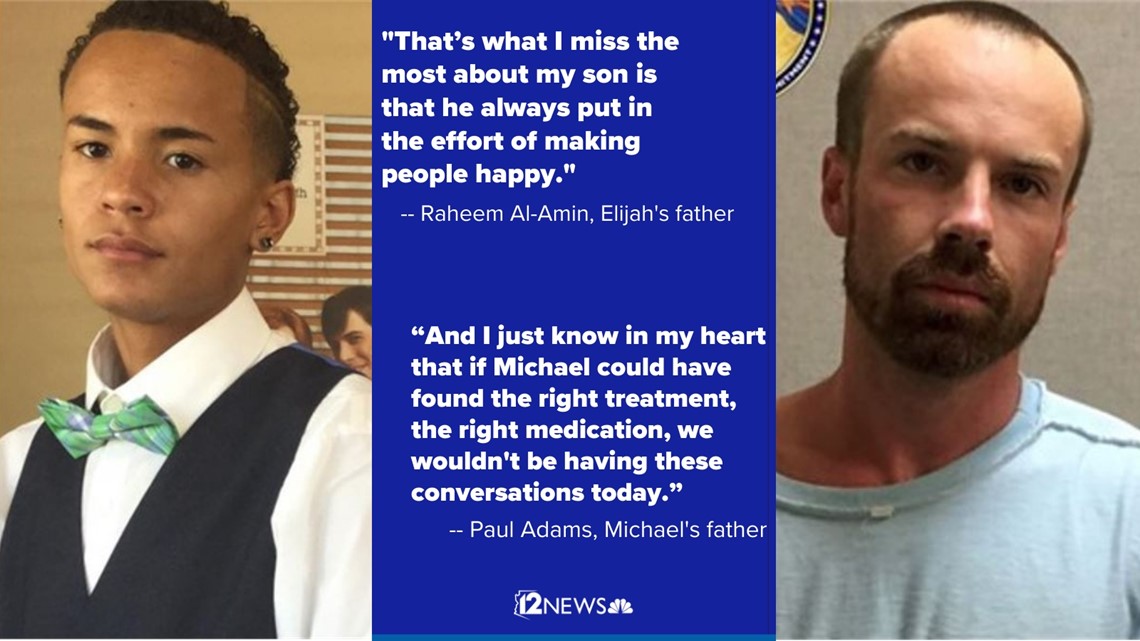
What hurts more is that Paul believes this all could have been prevented.
Two days before Elijah’s death, Michael Adams was released from prison, where he was serving time for assault and theft.
His criminal record is lengthy and indicates a history of mental illness. Yet, court records show Michael’s medication stopped for several months in prison and that he asked for help before his release.
But in the wake of Elijah’s murder, the state Department of Corrections said Michael wasn’t designated as SMI, or seriously mentally ill, when he was released.
“There was no continuity of care,” Paul explained. “And I was told that they were going to send him to a facility that would help him re-acclimate back into society slowly.”
Paul Adams is now suing some of Arizona’s prison health care providers and the former head of Arizona’s Department of Corrections, Rehabilitation and Re-Entry, claiming they didn’t do enough to treat Michael’s mental illness.
The suit, filed in July 2021, blames a broken correctional care system for Elijah’s death.
“And now my heart breaks for Elijah’s parents but my heart's broken over my own son too,” Paul said.
Elijah’s family actually came to the same conclusion, filing a similar lawsuit a few days before Paul’s was filed at the end of June 2021. Their suit goes after some of the same contracted prison care providers.
"That makes me angry,” Raheem Al-Amin said. “It gets me upset because they dropped the ball.”
This isn’t the first time Arizona’s prison system is accused of dropping the ball.
In 2012, a team representing more than two dozen inmates filed a civil rights lawsuit against Arizona’s Department of Corrections, claiming inmates were subject to inadequate medical, mental and dental health care, along with poor conditions in solitary confinement.
The sides originally reached an agreement in 2014 in which ADCRR had to comply with benchmarks agreed upon in court.
Since then, the department’s been found in contempt of court twice for missing those marks. Back in July 2021, a judge threw out the settlement agreement and ordered each side to go to trial. The trial started Nov. 1 and is still ongoing.
In an email, an ADCRR spokesperson said the department couldn’t comment on any pending litigation.
Chapter 2 'I wish that night could have been different': Elijah's story
It’s been more than two years since Elijah’s death and Raheem Al-Amin doesn’t go a day without thinking of his first-born son.
“Turn the wheel every day to get out of bed,” Raheem Al-Amin shared. “You keep turning it and it gets easier and easier. For that day. The next day it’s the same thing.”
Life without Elijah has been hard.
“I wish he was here,” Raheem Al-Amin told 12 News. “I wish that night could have been different.”
Raheem is not only dealing with his own grief, but grief from Elijah’s siblings. He said he vividly remembers a moment with Elijah’s younger brother.
“He goes ‘Why weren’t you there for Elijah?’" Raheem Al-Amin said through tears. “As a parent, we try to be there for our kids.”

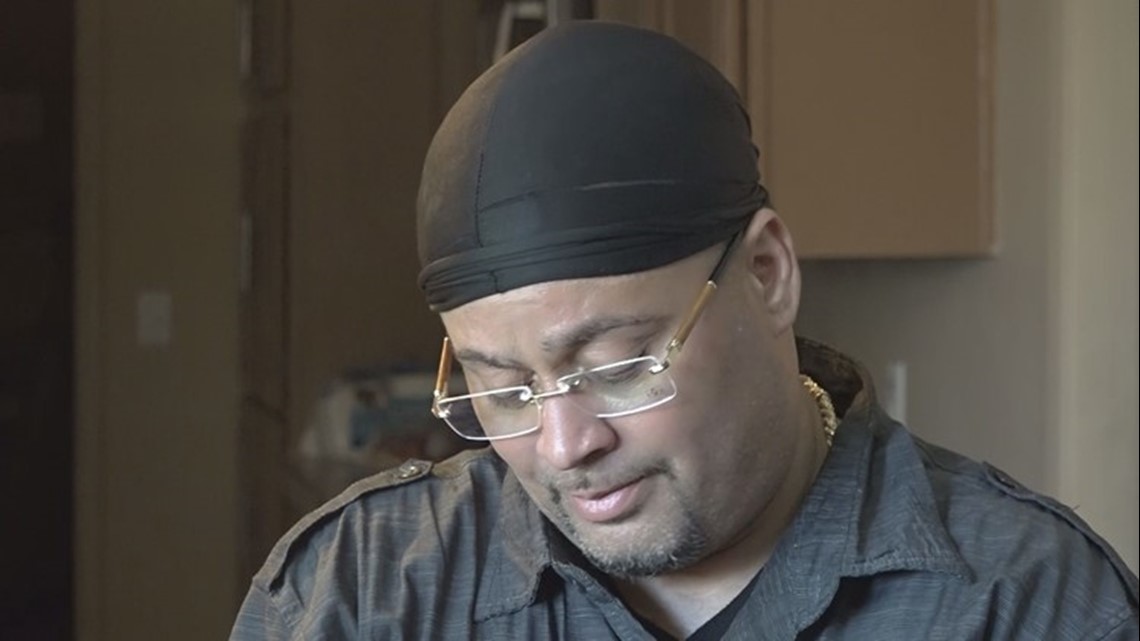
And thinking back to that Fourth of July in 2019, when Elijah was killed, is hard for Raheem Al-Amin to do.
“I always try to wake up with a positive,” Raheem Al-Amin explained. “OK. What would Elijah want me to do? How would he want me to respond?”
He shared that Elijah had dreams of working in hotel management. Elijah was about two weeks shy of his 18th birthday when he was killed.
Instead of celebrating that milestone, his family held a memorial party instead. Elijah’s dad said they even brought in a tattoo artist because his peers all wanted to tattoo Elijah’s name in his honor.
“A lot of people knew him and I didn’t know they knew him,” Raheem Al-Amin shared. “So amazing the love you get from one who actually passed or made a difference in the world in his short life.”
And the stories Raheem Al-Amin would hear in the days after Elijah’s death would console him, even if it hurt to think about the future Elijah would never have. He remembers people saying Elijah would pay for their food or people would tell him about an act of kindness at the grocery store or a gas station.
“That’s what I miss the most about my son is that he always put in the effort of making people happy," his father said.
Raheem Al-Amin's lawsuit against contracted care providers was filed at the end of June 2021. It blames contracted prison providers, such as Corizon, Centurion and Mercy Care, for failing to treat Michael Adams.
Centurion took over the state's contract as a health care provider for Arizona prisons on July 1, 2019, right around the time of Michael Adam's release. Corizona, which has faced lawsuits across the nation over inmate care, had been the contracted healthcare provider before Centurion.
None of the companies listed in his lawsuit responded to the 12 News I-Team's requests for comment.
Chapter 3 'A slippery slope': Michael's story
It might be hard to feel sympathetic for suspect Michael Adams. But if you put yourself in his dad’s shoes, you might gain a different perspective.
“Michael was a very bright and talented child,” Paul Adams explained. “As he was growing up, and his teenage years, he had a dream of becoming a doctor.”
If you look through the big collection of photos Paul has with his son, it looks like Michael was a happy kid, involved with his family.
"Another passion Michael had - he loved to write music and play his guitar," his dad shared. "You know, he had spent day and night writing music, singing."
But as Michael got older his life would change tunes. His father said they started noticing subtle changes around ages 18 and 19. Then, he started having anger issues, seemingly out of nowhere.
“Then finally, we just were like, something's kind of not right here.”
Over the years Paul Adams said Michael had several diagnoses, including autism, depression and schizophrenia.
Treatment wasn’t working and Michael wound up homeless, trying to hold down jobs.
“That ends up in shoplifting charges, and then ultimately, in jail,” he said.
Michael racked up a long criminal history, in and out of county jail. Then Michael went to prison in 2018 for theft and assault on a detention officer.
"It is a very slippery slope," his dad shared.

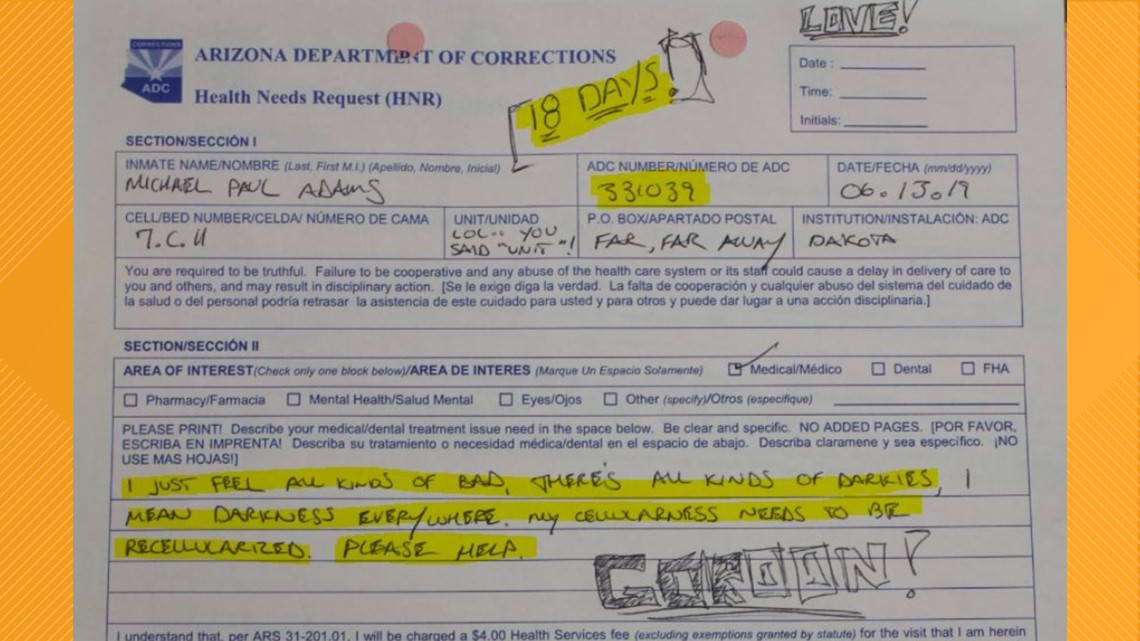
And things were about to get worse.
On July 2, 2019, Michael was released from prison in Yuma.
The following two days, records show he had some run-ins with local law enforcement in that area.
“And I ended up getting a call from a police officer who told me Michael’s in bad shape, what can we do to help get him home?” Paul Adams said.
Paul Adams booked Michael a bus ticket that would get him to the Phoenix area. And within hours after Michael was dropped off, police say he killed Elijah at the Circle K.
Before dawn, Paul Adams got a call from one of his kids’ old babysitters.
“And she goes, ‘My god Paul. Michael just did this. And it's all over the news.’” Paul Adams remembered. “I said, ‘You're crazy. There is no way.’”
But then he flipped on the TV. The disbelief morphed into shock.
“And then I just fell apart and started crying,” Paul Adams said. “I was like, 'there's just no way. No way. No way.'”
In Peoria police video, obtained by the 12 News I-Team in a public records request, Michael can be heard telling police he felt threatened by Elijah’s rap music.
“I’m constantly yelled at, attacked, targeted by people who have this mentality,” Michael Adams told an investigator. “Who listen to this music.”
When the investigator followed up, Michael told him he was trying to protect the community.
“Rather than being attacked...I took a proactive approach,” Michael stated.

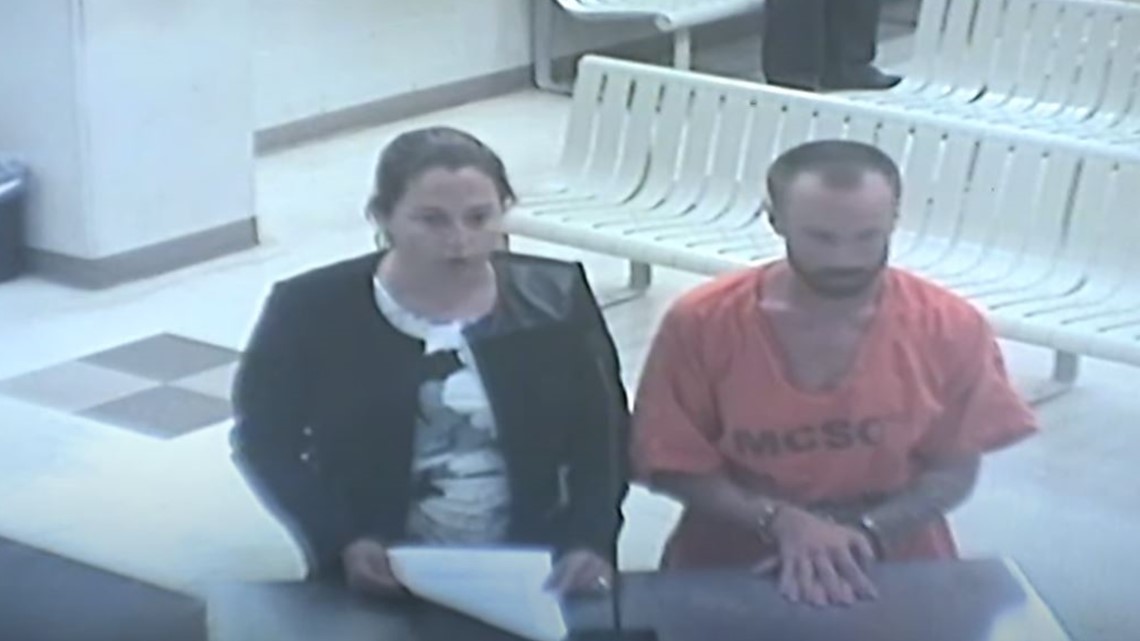
After he was booked for Elijah’s murder, his attorney at the time went on record insisting he needed help. Over the years, some police departments who had history with Michael Adams indicated he was “mentally disturbed.”
In fact, when Michael went to prison in 2018, court records claim he was a risk to others and put on mental health watch. A doctor even ordered he continue taking the antipsychotic medication he was on in county jail.
At the time of his release in July 2019, ADCRR said Michael Adams wasn’t designated as seriously mentally ill.
But records provided to 12 News by Michael’s dad claim Michael’s schizophrenia was left untreated for months while he was behind bars. Another document indicates Michael showed signs of psychosis and that he asked for help three weeks before his release. Help, Paul Adams said, Michael never got.
“The Department of Corrections themselves designated him harm to self, harm to others,” Paul Adams said. “And then you're just going to kick him right out into the street with literally no continuity of care?”
Paul Adams claimed Michael was released out of the prison in Yuma without any plan in place and no medications. He believes these are crucial moments that could have changed his son’s life and spared Elijah’s family all their pain.
“I know the hell they're going through,” he shared. “So if there's one message that I could send to them, it's just I'm sorry. If it could have been any other way, we would have made it happen. We tried.”
Paul Adams believes things should have been different, which is why he filed his own lawsuit in federal court against some of the contracted prison care providers and Charles Ryan, the former director of the ADCRR.

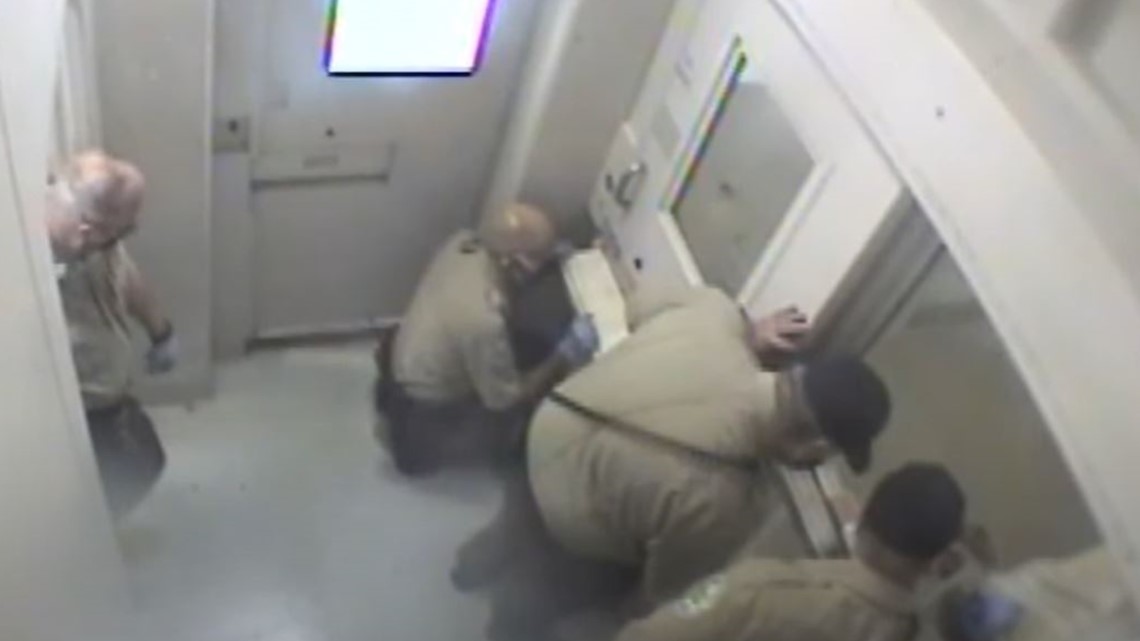
In an email, an ADCRR spokesperson said the department couldn’t comment on any pending litigation.
He also names prison care providers Corizon and Centurion in his lawsuit. These companies are also named in Raheem Al-Amin's lawsuit and neither company responded.
Chares Ryan announced his retirement from ADCRR in August 2019 amid longtime complaints of prison conditions and concerns over security after it was revealed inmates at the Lewis prison complex could unlock their own cells.
“And I just know in my heart that if Michael could have found the right treatment, the right medication, we wouldn't be having these conversations today,” Paul Adams said.
Michael Adams died in jail back in April 2021 while awaiting trial for Elijah’s murder.
The medical examiner ruled Michael died from natural causes and pointed out Michael’s history of heart problems and that one of his antipsychotic medications could have had a side effect.
“I classify myself as kind of a tough guy, I can handle a lot of stress and a lot of pressure,” Paul Adams shared. “But this is one thing that's broke me.”
The day after he learned his own son died in jail, Paul Adams turned his pain into purpose. He started the Michael Paul Adams Foundation, an organization that helps inmates get mental health care. He hopes it will help build a different legacy for Michael.
“There was no treatment,” Paul Adams said. “And my question is why? Two men are dead now. Because somebody just simply didn't want to do their job.”
Chapter 4 Dropping the ball?
This isn’t the first time families have gone after Arizona’s prison system for problems with care.
Back in 2012, a group of civil rights advocacy organizations like the ACLU and the Arizona Disability Law Center sued Arizona’s Department of Corrections.
The lawsuit alleged that inmates’ healthcare was “grossly inadequate” and that they weren’t getting proper services, including mental health care.
“People with very serious medical conditions, heart conditions, cancer and the like, not sent to see specialists in a timely manner,” said Corene Kendrick, deputy director of the ACLU’s Prison Project. “People with serious mental illness not getting proper medication, treatment or therapy and repeatedly engaging in acts of self-harm or committing suicide. We also heard about the abysmal conditions in solitary confinement.”
The inmates in the lawsuit are represented by organizations like the ACLU and Arizona Center for Disability Law among other plaintiffs.
One example 12 News highlighted back in 2014 was Tony Lester.
Lester was an inmate with schizophrenia who died in his cell after cutting himself with a razor.
He’d been on suicide watch before and the lawsuit claims prison staff didn’t go in to help him in time.
"Correctional officers were there waiting for him to die," his aunt told 12 News in 2014.
Kendrick has been on the case since it was originally filed in 2012. But back then, she never imagined the case would still be ongoing nearly a decade later.
"It just seems like there’s been a lot of squandered opportunities and a multitude of needless suffering and harm by people who are in the prisons," Kendrick said.

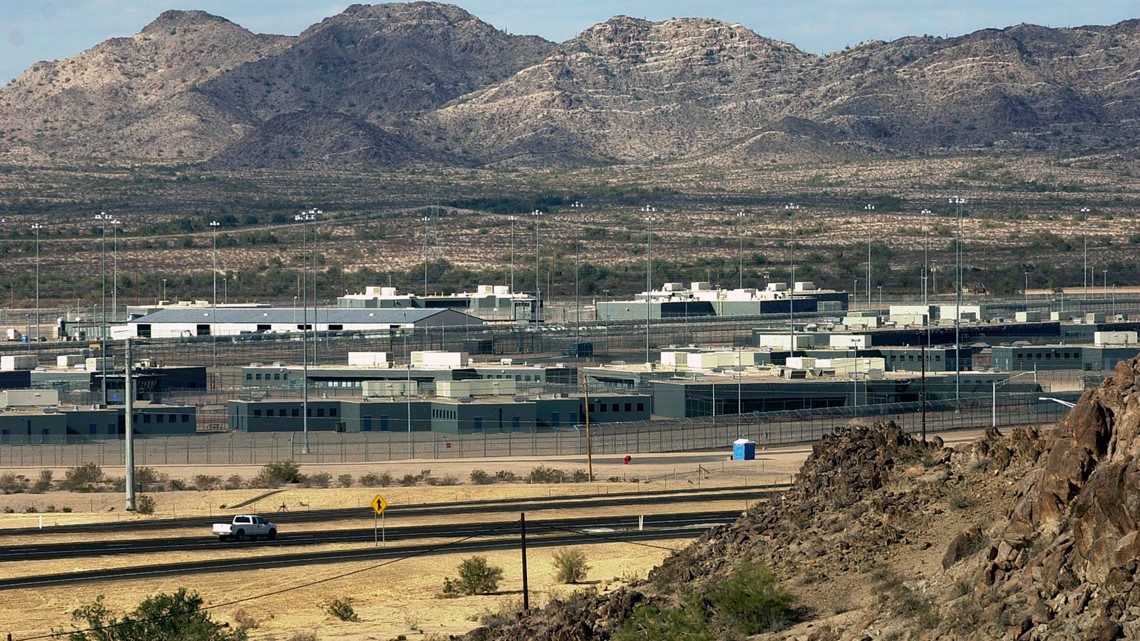
Right before trial, in 2014, a settlement was reached. The settlement was not monetary, but ADCRR agreed to comply with 103 “health care performance measures” set forth in court.
Since then, a judge found the state’s prison system in contempt of court twice for not meeting those marks. The first time was in 2018, and ADCRR was fined $1.4 million. The second violation came in February 2021 and this time, ADCRR was hit with a $1.1 million fine.
“This ripples out to families,” Kendrick said. “When people are in prisons and have severe mental health conditions that are not diagnosed in a timely manner. If they are permanently disabled or they die. It obviously ripples out to their loved ones and their communities that they come from. It also has an impact on people who work in the prison system.”
She points to Elijah Al-Amin’s death as an example.
“It was a preventable tragedy,” she said.
In July 2021, a new judge threw out that 2014 settlement, requiring both sides to go to trial. The trial started in Phoenix's federal court on Nov. 1.
The plaintiffs are not only referring to the original complaint in federal court, but bringing in inmates they claim have been impacted by poor health care and conditions since the settlement was reached.
In an email, an ADCRR spokesperson said the department couldn’t comment on any pending litigation. Court records show they’ve blamed contracted care providers and COVID-19 as some of the reasons for potential problems with care.
“It’s extremely frustrating for us as the attorneys who have been working tirelessly on this litigation going on 10 years,” Kendrick explained. “But it’s even more frustrating and devastating for our clients and for their loved ones. And frankly, it’s devastating for the community because the problems do not stay inside the prison walls.”


